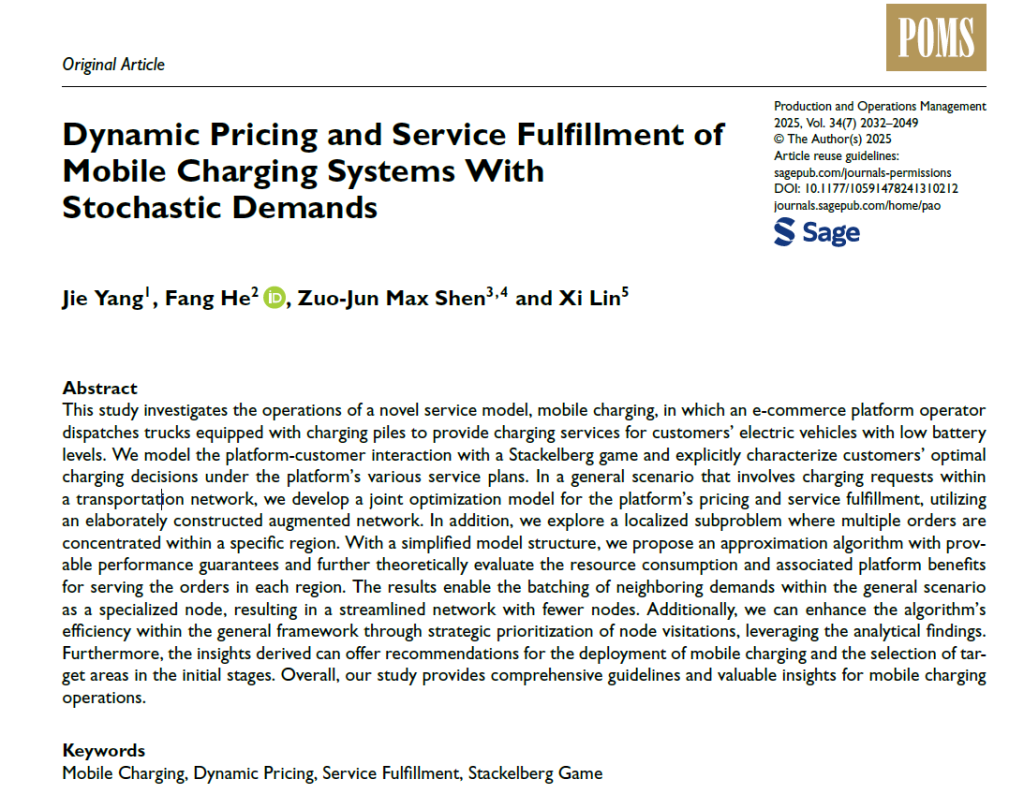
Assistant Professor YANG Jie of Tongji SEM Published Research Findings in Production and Operations Management
Wed, Oct 22, 2025
As the electric vehicle market continues to expand rapidly, demand for charging is growing. In addition to traditional fixed charging stations, some companies have started to explore mobile charging service models, offering on-site recharging for users’ vehicles. The advantages of this approach include high service flexibility and the ability to alleviate grid pressure. However, stochastic demand fluctuations and complex spatial distribution present significant operational challenges for mobile charging platforms, such as achieving coordinated optimization of efficient scheduling and rational pricing. In order to investigate the operational mechanisms of this new service model, YANG Jie (assistant researcher in the Department of Management Science and Engineering at Tongji SEM) published the thesis titled ‘Dynamic Pricing and Service Fulfillment of Mobile Charging Systems with Stochastic Demands’ in Production and Operations Management, an internationally top-tier journal in the field of operations management. This research provides a systematic analytical framework and decision-making reference for the operation of mobile charging services.
This research topic stems from the practical challenges encountered when implementing the emerging mobile charging model in the real world. Unlike traditional fixed charging stations, mobile charging offers a door-to-door, on-demand service via platform scheduling, significantly reducing the time users spend searching for and waiting at charging stations. However, users’ choice of charging method and their complex spatial distribution present new challenges for the platform’s scheduling and pricing decisions. To address these, the study proposes a game-theoretic model to reveal the influence of user behavior on the platform’s operational strategies. In response to the computational complexity of large-scale, real-world problems, the paper suggests modelling demand centrally in advance to reduce the number of network nodes. Guided by industry pain points and combining theoretical analysis with algorithm design, this research proposes an efficient decision-making method for mobile charging systems. This method improves the efficiency with which resources are utilized and optimizes the user experience, providing a reference for the intelligent upgrading of charging services. The study proposes efficient decision-making methods for mobile charging systems, guided by industry issues and integrating theoretical analysis with algorithm design. These methods enhance resource utilization efficiency, optimize user experience, and provide valuable insights for the intelligent upgrading of charging services.
We protect your privacy. We use cookies to personalize content, provide features, and analyze traffic to our website anonymously and in a privacy compliant manner. By law, we may store cookies on your device if they are strictly necessary for the operation of this site. For all other cookie types, we need your permission. For more information, please see the privacy policy linked below.